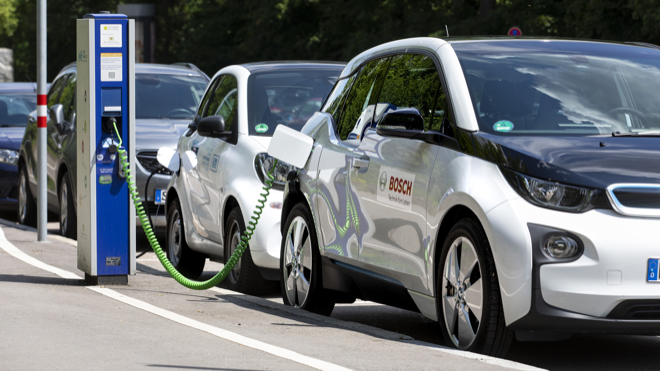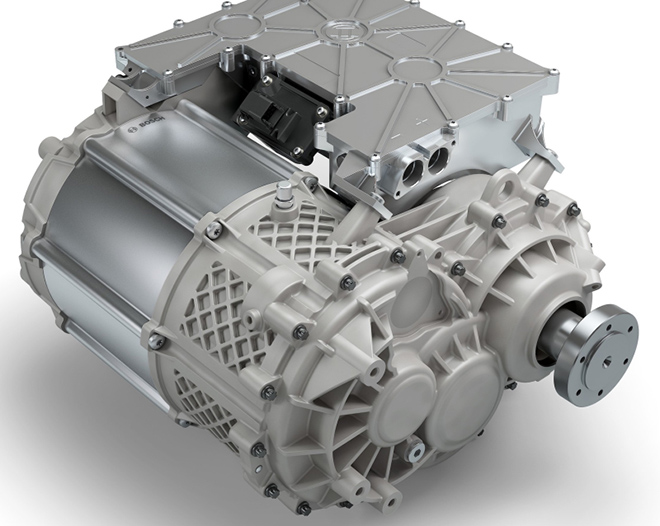Since the beginning of 2018, Bosch has won electromobility-related orders worth roughly €13 billion, including production projects for electric powertrains for passenger cars and light trucks. The company is fast-tracking electrification, as well as developing higher-efficiency ICEs and investing in fuel cells, automated driving and technology for mobility services.
At the beginning of 2019, Bosch forecasted €5 billion in sales of electromobility components for passenger cars and light trucks by 2025. Now it expects to exceed that figure.
Each year, the company invests €400 million in emission-free mobility. However, Bosch estimates that in 2030, 75% of new vehicles will still have a conventional engine, so it’s also working on more efficient gas and diesel engines.
The company is also working to minimize particulate emissions from braking. Its iDisc brake disc generates as little as 10% of the brake dust produced by conventional brake discs. Its regenerative braking system can cut brake dust by over 95% in EVs.

By 2022, Bosch plans to invest €4 billion in automated driving tech. For the US and Asian markets, it is currently developing Level 2 systems that allow drivers to take their hands off the wheel on the freeway. In Germany, Bosch and Daimler were recently granted approval for a Level 4 system – automated valet parking in the parking garage of the Mercedes-Benz Museum in Stuttgart.
Bosch is working with mobility service companies DiDi, Lyft, and Uber. DiDi, a leading Chinese provider of mobility services, is using Bosch’s cloud-based battery services to help increase the service life of their vehicle batteries. Bosch also entered into an alliance with chassis and automotive specialist Benteler at the beginning of 2019 to manufacturer a rolling chassis for mobility service shuttles.
Volkmar Denner, Chairman of Bosch’s Board of Management, said, “Whatever the technology that brings about emission-free mobility, we have to get the market to accept it. We will only manage that with affordable solutions. If we don’t offer them, we won’t help stop global warming.”
Source: Bosch




















































